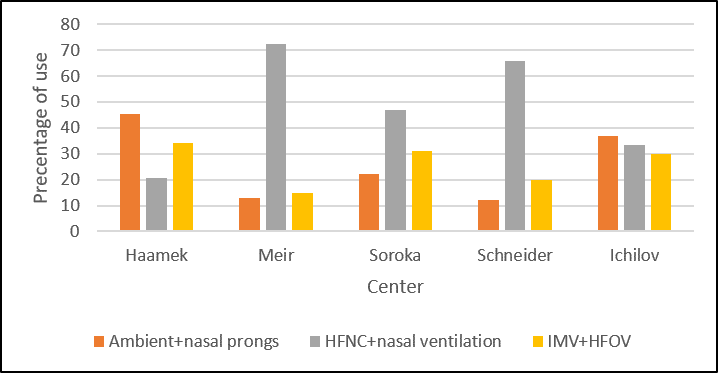Background: Viral bronchiolitis caused by Respiratory Syncytial Virus is one of the most common diseases of childhood. These infants sometimes deteriorate and require admission to the intensive care unit. We aimed to describe the diagnostic and therapeutic measures of bronchiolitis in Israeli PICUs and evaluate the inter-center variability of care.
Design and setting: Medical records of all infants admitted to 5 Israeli PICUs over 4 RSV seasons were retrospectively reviewed. Demographic, clinical and therapeutic data was collected and analyzed for difference between the centers.
Results: Two hundred eighty-five infants with RSV bronchiolitis were admitted to the participating PICUs between 11/2012 and 04/2016. Most of the infants were males with a mean admission age of 4.6 months. There was significant variance in RSV diagnostic method (PCR vs. rapid antigen detection) and medical management of the infants. Primary and maximal mode of respiratory support differed between the centers (p<0.001). Furthermore, utilization of inhalational therapy and transfusion of blood products differed significantly between the centers. Although 86.7% of the cohort was treated with antibiotics, isolation of bacterial pathogen was documented in only 13.3% of the infants.
Conclusion: Significant variations in current diagnostic methods and management of infants with RSV bronchiolitis admitted to 5 Israeli PICUs over 4 RSV seasons were documented. We have also observed routine use of medications without proven efficacy. Further investigation into evidence-based care may allow development of guidelines and protocols for treatment of infants with severe bronchiolitis.

